- Clone
- 4F11/CTTN (See other available formats)
- Regulatory Status
- RUO
- Other Names
- Amplaxin, Src Substrate Cortactin, Oncogene EMS1
- Isotype
- Mouse IgG1, κ
- Ave. Rating
- Submit a Review
- Product Citations
- publications
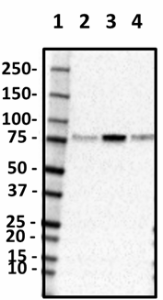
-

Western blot of purified anti-Cortactin (CTTN) antibody (clone 4F11/CTTN). Lane 1: Molecular weight marker; Lane 2: 20 µg of human brain lysate; Lane 3: 20 µg of mouse brain lysate; Lane 4: 20 µg of rat brain lysate. The blot was incubated with 0.5 µg/mL of the primary antibody overnight at 4°C, followed by incubation with HRP-labeled goat anti-mouse IgG (Cat. No. 405306). Enhanced chemiluminescence was used as the detection system. -

ICC staining of purified anti-Cortactin (CTTN) antibody (clone 4F11/CTTN) on SH-SY5Y cells. The cells were fixed with 4% PFA, permeabilized with 0.25% Triton X-100, and blocked with 2% normal goat serum and 0.02% BSA. The cells were then stained with 5 µg/mL of the primary antibody for 1 hour at room temperature, followed by incubation with 1 µg/ml of Alexa Fluor® 594 conjugated goat anti-mouse IgG (Cat. No. 405326) for 1 hour at room temperature. The cells were co-stained with Alexa Fluor® 488 anti-Tubulin β 3 (TUBB3) antibody (clone TUJ1) at 1:500 dilution. Nuclei were counterstained with Hoechst 33342, and the slide was mounted with ProLong™ Gold Antifade Mountant. The image was captured with a 40X objective. Scale Bar: 50 µm
| Cat # | Size | Price | Quantity Check Availability | Save | ||
|---|---|---|---|---|---|---|
| 868101 | 25 µg | 85€ | ||||
| 868102 | 100 µg | 221€ | ||||
Cortactin is a cytosolic protein that promotes polymerization, rearrangement of the actin cytoskeleton, and synaptogenesis. Stimuli such as alterations in the concentration of growth factors lead to phosphorylation of cortactin by tyrosine or serine/threonine kinases. This modification enables cortactin to bind to filamentous actin and Arp2/3, resulting in the branching of the actin cytoskeleton. In addition, cortactin may be involved in clathrin-independent endocytosis. Amplification of the cortactin gene is observed in certain tumors, indicating that it may also be a component of tumorigenesis.
Product DetailsProduct Details
- Verified Reactivity
- Human, Mouse, Rat
- Antibody Type
- Monoclonal
- Host Species
- Mouse
- Formulation
- Phosphate-buffered solution, pH 7.2, containing 0.09% sodium azide.
- Preparation
- The antibody was purified by affinity chromatography.
- Concentration
- 0.5 mg/ml
- Storage & Handling
- The antibody solution should be stored undiluted between 2°C and 8°C.
- Application
-
WB - Quality tested
ICC - Verified - Recommended Usage
-
Each lot of this antibody is quality control tested by Western blotting. For Western blotting, the suggested use of this reagent is 0.5 - 10 µg per ml. For immunocytochemistry, a concentration range of 2 - 10 μg/ml is recommended. It is recommended that the reagent be titrated for optimal performance for each application.
- RRID
-
AB_2810811 (BioLegend Cat. No. 868101)
AB_2810812 (BioLegend Cat. No. 868102)
Antigen Details
- Structure
- Cortactin is a 634 amino acid protein with predicted molecular mass of ~ 71 kD and observed molecular mass of ~ 80 kD.
- Distribution
-
Tissue Distribution: Ubiquitously expressed
Cellular Distribution: Plasma membrane, cytoskeleton, cytosol, and Golgi apparatus - Function
- Cortactin promotes polymerization and the rearrangement of the actin cytoskeleton upon external stimulations.
- Interaction
- SHANK2, SHANK3, FGD1, ABL2, KCNA2, PLXDC2, SRCIN1, SMASN1, ASAP1.
- Cell Type
- Astrocytes, Endothelial cells, Neurons, Oligodendrocytes
- Biology Area
- Cancer Biomarkers, Cell Motility/Cytoskeleton/Structure, Neurodegeneration, Neuroscience, Protein Trafficking and Clearance, Synaptic Biology
- Molecular Family
- Cytoskeletal Proteins, Synaptic Vesicle Trafficking/Endocytosis
- Antigen References
-
- Ramos-Garcia P, et al. 2019. Oral Dis. 25(4):949
- Schnoor M, et al. 2018. Trends Cell Biol. 28(2):79
- Yin M, et al. 2017. Oncotarget. 8(50):88232
- Gene ID
- 2017 View all products for this Gene ID 13043 View all products for this Gene ID 60465 View all products for this Gene ID
- UniProt
- View information about Cortactin on UniProt.org
Other Formats
View All Cortactin Reagents Request Custom Conjugation| Description | Clone | Applications |
|---|---|---|
| Purified anti-Cortactin (CTTN) | 4F11/CTTN | WB,ICC |
Customers Also Purchased
Compare Data Across All Formats
This data display is provided for general comparisons between formats.
Your actual data may vary due to variations in samples, target cells, instruments and their settings, staining conditions, and other factors.
If you need assistance with selecting the best format contact our expert technical support team.
-
Purified anti-Cortactin (CTTN)
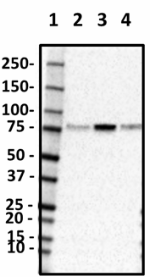
Western blot of purified anti-Cortactin (CTTN) antibody (clo... 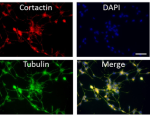
ICC staining of purified anti-Cortactin (CTTN) antibody (clo...
 Login / Register
Login / Register 




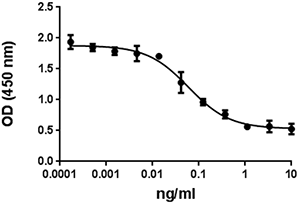
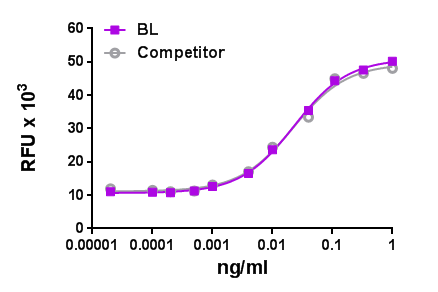
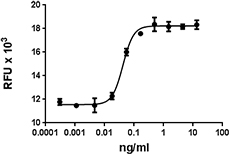
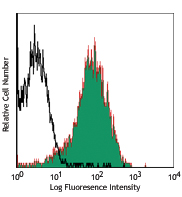



Follow Us